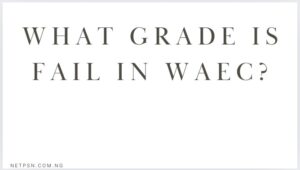Comprehensive Guide to WAEC Subject Registration: Maximize Your Exam Preparation
Introduction to WAEC Subject Registration
The West African Examinations Council (WAEC) offers a pivotal opportunity for students to certify their proficiency in various subjects, culminating in the West African Senior School Certificate Examination (WASSCE). Selecting the right combination of subjects is crucial as it not only affects your future educational trajectory but also your career prospects.
Key Considerations for Choosing WAEC Subjects
When registering for the WAEC exams, students can select from a diverse array of subjects, which are categorized into three core groups: Compulsory, Elective, and Cross-cutting. Understanding the interplay between these categories ensures that candidates make informed decisions that align with their academic and professional goals.
Compulsory Subjects:
These are subjects that every candidate must take, regardless of their intended field of study. They typically include:
- English Language
- Mathematics
- At least one Nigerian Language (depending on the country of examination)
- Civic Education
- Life Skills
Elective Subjects:
Elective subjects vary widely, allowing students to focus on areas that are more closely aligned with their future educational and career aspirations. These subjects are divided into departments such as Sciences, Humanities, and Business. Typical choices include:
- Sciences: Physics, Chemistry, Biology
- Humanities: Literature in English, History, Geography
- Commercial: Economics, Accounting, Commerce
Cross-cutting Subjects:
These subjects include additional languages, further mathematics, and technical subjects like Computer Studies or Information Technology, which are increasingly pertinent in today’s digital world.
Optimal Number of Subjects for WAEC Candidates
While WAEC allows registration for a maximum of nine subjects, the optimal number depends largely on the student’s capacity, interests, and academic goals. We recommend that students register for:
- Minimum: Six subjects, covering compulsory areas and at least one elective that aligns with future aspirations.
- Optimal: Eight subjects, providing a balanced mix of compulsory and elective subjects, enhancing both knowledge breadth and specialization.
- Maximum: Nine subjects, which is advisable only for highly capable students aiming for extensive higher education opportunities.
Strategic Benefits of Subject Selection
Selecting the right subjects can significantly enhance your academic profile. It demonstrates a focused educational direction, essential for university admissions and scholarship applications. Moreover, it equips students with a robust foundation in both general education and specialized areas, critical for success in higher education and beyond.
Conclusion: Maximizing WAEC Success
The strategic selection of WAEC subjects is more than just a registration checklist; it’s a critical step in shaping your educational and career future. By carefully choosing subjects that not only fulfill compulsory requirements but also align with personal academic and professional goals, students can maximize their potential for success in the WASSCE and beyond.
By adhering to the guidelines provided, students can enhance their readiness for higher education and future career opportunities, ensuring that they not only meet but exceed their educational objectives.

















+ There are no comments
Add yours